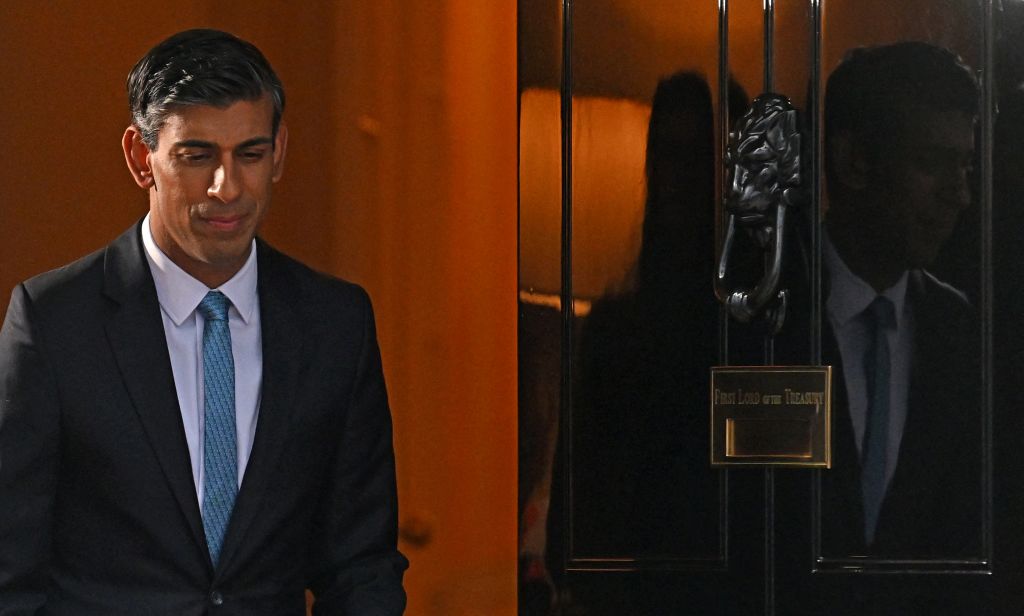When Labour lost Hartlepool to the Tories in a parliamentary by-election 18 months ago, Keir Starmer was reported to have asked aides: ‘Why does everybody hate us?’
After the heavy Tory defeat in last night’s City of Chester by-election, Rishi Sunak would do well to pose the same question to his own lieutenants. Because the result confirms him as the second Conservative prime minister in a row not to receive any kind of electoral honeymoon.
That Labour held Chester will in itself raise few eyebrows. After all, opposition parties are supposed to find defending their own seats at by-elections pretty straightforward. But the heavy extent of the Conservative defeat in a constituency where the party was very competitive at recent elections and when the previous Labour MP had resigned in disgrace is a harbinger of doom.
Labour chalked up a 61 per cent vote share, compared to the Tories’ 22 per cent. The party achieved a 14 per cent swing against the Tories, giving it a majority of nearly 11,000 in a contest that saw a relatively respectable 41 per cent turnout.
The only sliver of consolation for Sunak is that the Reform UK challenger on his right flank once again failed to connect with voters, chalking up a vote share below three per cent. If and when it does – and YouGov recorded a nine per cent rating for it in its latest nationwide poll – the game could be over for Sunak far earlier than anyone has yet envisaged.
I have been struck by the loathing felt by many 2019 voters for the Sunak regime and the Conservative parliamentary party in general
The weakness of the Prime Minister’s position is striking when all its main features are listed: a leader without a popular mandate, increasingly not rated by his own party’s grassroots (see this week’s Conservative Home polling). He’s presiding over a country widely seen to be falling apart, where living standards are falling in the dog days of a fourth successive term in office for the party and facing an opposition leader visibly growing in confidence in their despatch box exchanges.
Worse still, a prevailing mood of decadence is everywhere. Matt Hancock has swiftly moved to monetise his new brand with a volume of revelatory memoirs; another Tory MP has just been reported to the police – by parliamentary colleagues – for alleged sexual misconduct.
But why, indeed, do so many people now hate the Conservatives? Part of the answer is that we are living in polarised times. The block of people who habitually detest the Tories is therefore bigger than it used to be, certainly bigger than at any time since Margaret Thatcher was in Downing Street.
But the other main reason is surely that the Conservative high command has been trying to court people who will never vote for it at the expense of those who did at the last general election. Emphasising carbon net zero when the Tory-leaning electorate craves immigration net zero is the kernel of the problem.
I have been struck in recent weeks by the loathing felt for the Sunak regime and the Conservative parliamentary party in general by many people who voted for them in 2019. This factor is crucial because if it still prevails come the next election then the one obvious remaining argument for re-electing the Tories – that the Labour alternative would be worse – simply won’t work.
If a big chunk of your own base actively wants you to lose then there is no hope. The best prospect currently seems to be that these voters will sit on their hands on election day. But the possible alternatives of them either voting Labour or, more likely, switching to Reform in droves would do even more long-term damage to the Tories.
The Sunak administration has until autumn 2024 to try and win back this lost tribe of social and cultural conservatives. The circumstances are hardly propitious for an impending ‘Operation Get Tough’ relaunch, about which Sunak was taunted in the Commons this week by Starmer. But his inner circle would be well advised to take another look at whatever it is they are planning in terms of both style and substance and then multiply it by a factor of ten.







Comments